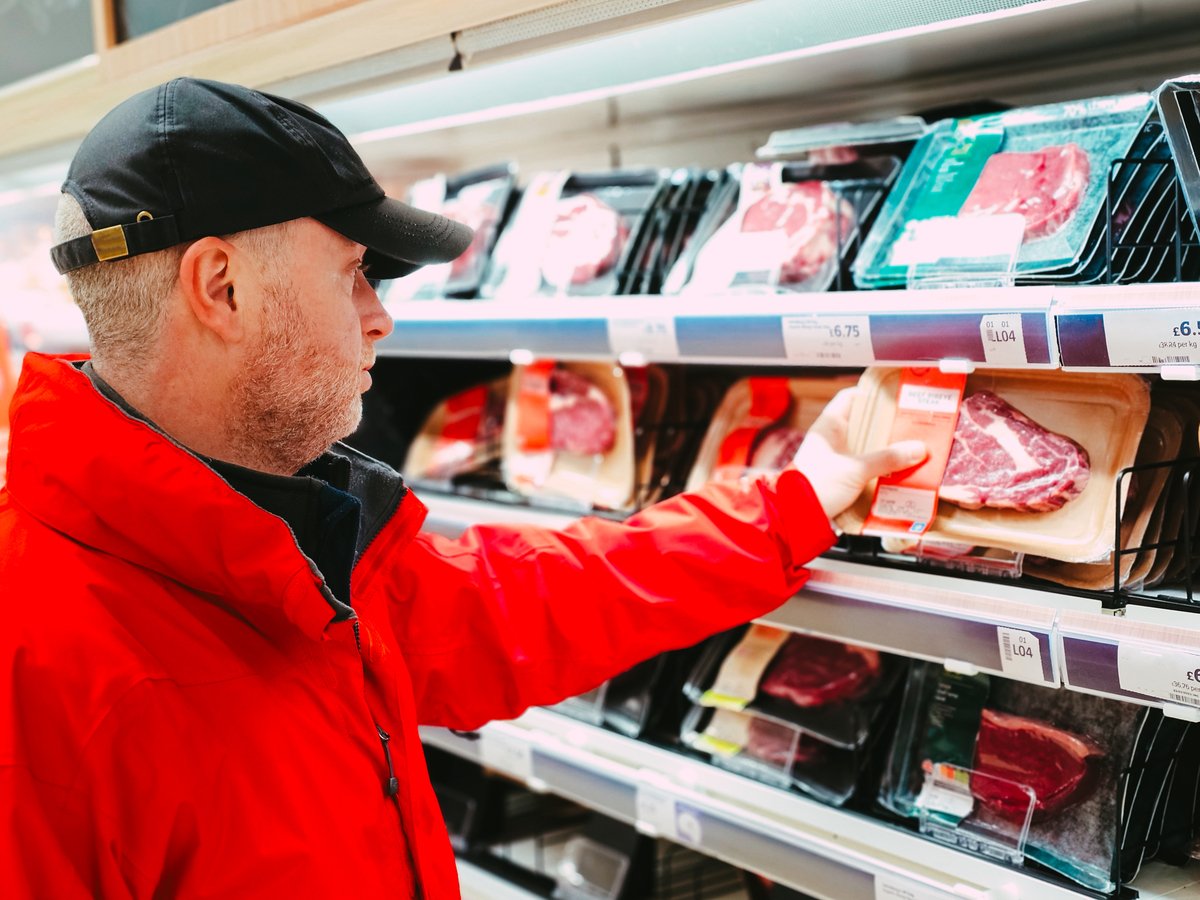On Beyond Meat's (BYND 1.66%) recent third-quarter earnings call, founder and CEO Ethan Brown, showing some excitement in his voice, finally got to announce a positive net income for the first time since the company was founded 10 years ago. If you've been following the stock since its IPO back in May, you've seen the large rise, then the latest drop, and inevitably heard all of the buzz surrounding it. Now, it's easy to get excited for Beyond Meat's future with the multitude of partnerships the company has recently announced -- including the PLT (Plant, Lettuce, Tomato) Burger with McDonald's and the Beyond Breakfast Sandwich with Dunkin' -- or because as of this writing, early investors have seen a 200% return since its IPO at $25. But if you're deciding whether to invest in the young plant-based meat producer now, what should you be asking?

Image source: Beyond Meat.
Is plant-based meat here to stay?
Nonprofit organization The Good Foods Institute has calculated that the plant-based food market is now worth almost $4.5 billion in the U.S. and has grown 11% in just the last year. More specifically, plant-based meat grew 10% last year, down from 25% growth the prior year, but industry analysts from Markets and Markets are still projecting it to grow internationally from a $12.1 billion market in 2019 to a $27.9 billion market by 2025. In 2018, it accounted for 1% of all dollar sales in total retail meat in the U.S.
By comparison, in the plant-based food market, plant-based milk is the clear leader in sales with a worth of $1.86 billion, with plant-based meat a distant third (after other plant-based dairy) at $801 million. However, The Good Foods Institute issued a "State of the Industry" report that shows very similar demographics of plant-based milk and meat consumers. In the United States, plant-based milk now has a 13% share of the overall retail milk market, growing 61% from 2012 to 2017 and another 6% in 2018. If plant-based meat follows a similar trajectory, there could be a substantial amount of growth remaining for Beyond Meat and other plant-based meat companies.
Beyond Meat's latest quarterly earnings report showcased a 211.5% year-over-year increase in revenue coming from the retail segment alone. Retail is important because it shows that consumers aren't just tasting, say, one breakfast sandwich at a Dunkin' in New York City (the Beyond Breakfast Sandwich was released nationwide on Nov. 6), they are buying the product and cooking it for their family. Among retail packaged meat, plant-based meat now has a 2% market share, and overall, plant-based meat reached 15 million U.S. households last year.
How does Beyond Meat handle new competition?
Any successful company, no matter the industry, is always going to have a competitor trying to outdo its product. While still privately held, Impossible Foods, whose CEO says it has no plans to go public soon, is a direct competitor and has created many of its own partnerships, including the Impossible Whopper with Burger King.
Also, some of the largest food companies in the world are using their vast amount of resources to enter the plant-based meat market. Tyson Foods (TSN +0.17%), an early investor in Beyond Meat and the leading meat producer in the U.S., sold its shares pre-IPO and over the summer launched its own plant-based meat brand, Raised & Rooted. Tyson has kept its investments in start-up plant-based companies as well while releasing plant-based chicken nuggets and a blended beef/pea protein burger by Raised & Rooted. Companies such as Nestle, Kellogg and Hormel Foods all have announced or began selling plant-based meats as well. Even store brands such as Simple Truth from Kroger are also releasing their own plant-based options. While Beyond Meat still has first-mover advantage, how long is that going to be able to last?
With gross margins currently over 35%, gaining new strategic partnerships with restaurants and stores is going to be vital for Beyond Meat to maintain profitability and continue to differentiate itself from other producers. If the company fails to do that, those margins will surely go down as consumers have more options on the market. The most critical element of Beyond Meat's future is making sure consumers want a Beyond Meat burger, not just a plant-based burger.
What are Beyond Meat's plans for growth?
In a recent interview with CNBC, Brown laid out his plan for growing Beyond Meat and handling the competition. "People have asked me, 'Do you want to do a partnership with a larger company?' I have no interest in that. I want to be that larger company." He mentioned the partnerships the company has started and will continue to create with multiple restaurants. Brown also mentioned that his focus is on creating "the right fundamentals of the business" and on "building a large, sustainable, global protein company that will be around for decades to come."
Given Brown's emphasis on global growth, differentiating its product will be key to the future of the company. With a debt-to-equity ratio of 1.2, Beyond Meat is not overleveraging itself, and a current ratio of 7.47 shows the company can easily pay its short-term liquidity needs. These figures show that Beyond Meat has the flexibility to take on some more debt when it sees an opportunity to expand.
With its market cap a little less than $5 billion right now, Brown says he wants a $40 billion company. Time will tell if Beyond Meat is up to the task.











